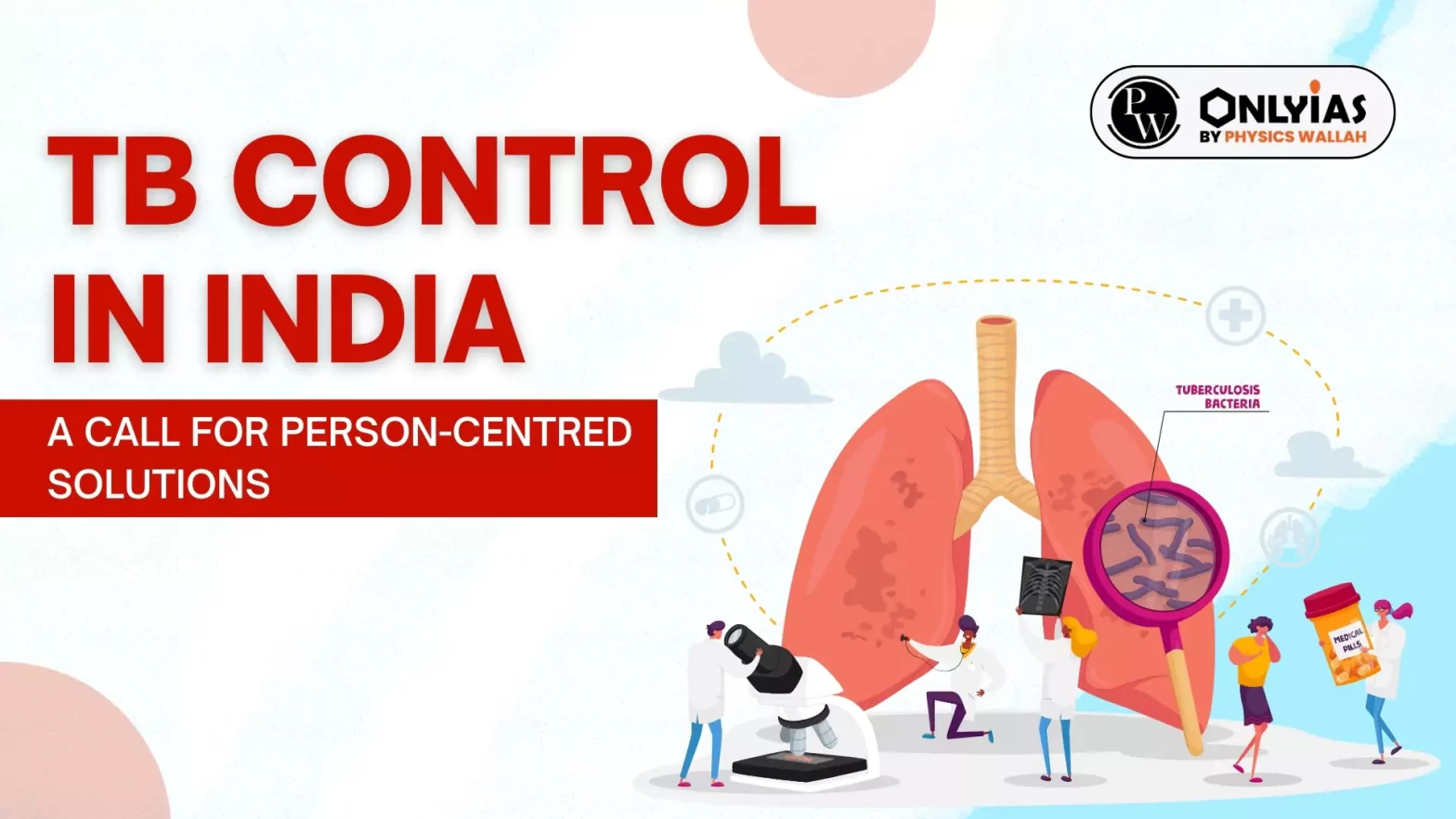Context
Globally, and in India, tuberculosis (TB) continues to remain a significant public health challenge impacting millions.
Tuberculosis (TB): A Global Health Crisis Requiring Immediate Action
- Slow Progress to Fight Against Tuberculosis: The challenge is huge and progress is not fast enough despite ambitious goals set by India’s health authorities to eliminate TB.
- Lack of Efficient and High Quality Care: Access to efficient and high quality care, diagnosis, treatment and support is still not available to every person diagnosed with the disease.
- Urgent Call for a Paradigm Shift in India’s Approach to TB Control: India requires a shift in its approach to controlling TB, emphasizing the central role of those affected and their lived experiences in addressing this long standing disease.
- Broadening Perspectives on Tuberculosis Beyond Medicalization: At times, TB has been excessively medicalized, a tendency common among doctors and public health professionals.
- TB has been overlooked as a humanitarian, gender-specific, economic, and socio-environmental crisis.
TB Control in India Calls for Person-Centred Solutions
-
Prioritizing Patient and Community Needs:
- The needs and the interests of patients and communities must be prioritized within the care paradigm and the health- care system.
- This principle, echoed by survivors, communities, health experts and policymakers, underscores the need for a person-centred approach to TB care and management.
-
Understanding Lived Experiences:
- The greatest gap has been in understanding the lived experiences of the affected individual fighting and surviving TB.
- The experiences and challenges faced by the individuals who have previously suffered from TB should be considered in formulating policies to support current TB patients.
-
Issues faced by TB Patients:
- Major problems faced by the TB patients include:
- Social stigma
- Isolation
- Discrimination at Workplaces
- Nutrition
- Mental Health Issues
-
Major Steps to Tackle TB:
- Steps to effectively deal with TB include:
- Testing facilities in rural areas in order to diagnose TB in initial stages only
- Medicines at affordable prices
- Nutrition to diagnosed TB patients
- Proper Air Ventilation
- Tackling myths and stigma attached to TB
-
Care Needs to be More Humane:
-
- By supporting frontline TB workers, strengthening supply chains and procurement mechanisms, decentralising TB services and empowering local communities, India can reduce stigma, overcome barriers to access and enhance treatment outcomes.
-
Tapping Technology:
- Leveraging technology and innovation holds promise in enhancing TB care efforts in India.
- The adoption of Al and digital health solutions for TB diagnosis, adherence and surveillance can revolutionise the way TB care is delivered and accessed in the country.
- By investing in developing better vaccines, TB can be eliminated.
Conclusion
The path to TB elimination in India requires a concerted effort to prioritise person-centred care, address social determinants of health, and embrace innovation. By adopting a holistic and person-centred approach, India can overcome the barriers that stand in the way of TB control and create a healthier future for all its citizens.
Also Read: India’s First Indigenously Developed Hepatitis A Vaccine
![]() 26 Mar 2024
26 Mar 2024
